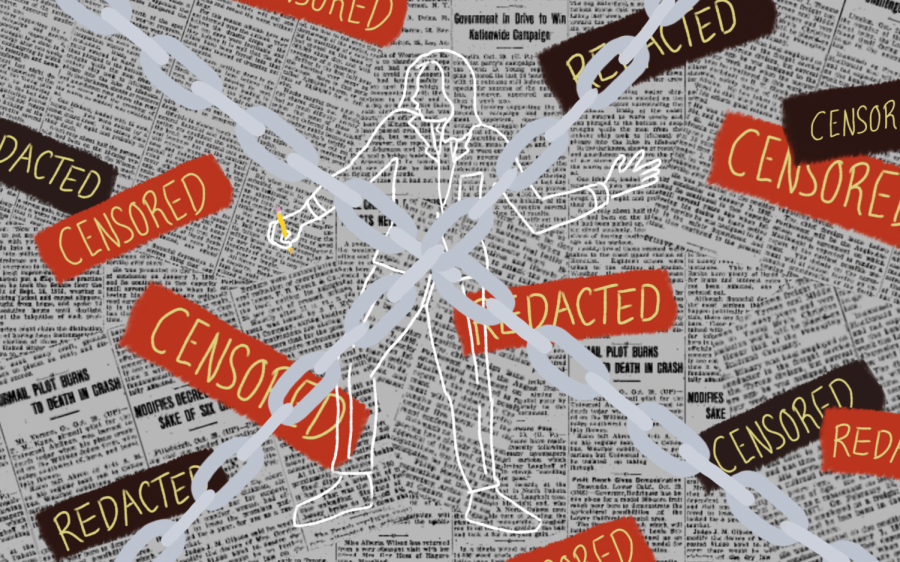Free press is not our enemy
November 28, 2018
There are three main roles that our national press takes: gatekeeper, scorekeeper, and watchdog. Serving as gatekeeper determines what information is released to the public as news. As scorekeeper, the press keeps track of political trends in elections and candidacies. And due to recent events, media’s watchdog function, investigating personalities and scandals, is under threat.
Jamal Khashoggi, a prominent Saudi journalist residing in the United States, wrote for The Washington Post, often criticizing the Saudi government. On Oct. 2, he entered the Saudi consulate in Istanbul and was murdered. President Trump has notably refused to condemn Saudi Arabia for its involvement, despite the CIA reporting that there is strong evidence that the crown prince, Mohammed bin Salman, personally ordered the killing.
Khashoggi was in a unique position—he was both close to the royal family and well-acquainted in the west, making him a popular go-to journalist for information on Saudi Arabia. He moved to the U.S. a year ago, out of fear of retribution from the Saudi government. Even so, his voice was silenced—not on Saudi soil, but on Turkish, and not while gathering information, but while fetching marriage documents.
President Trump’s inaction, fueled by the greater importance placed on Saudi-U.S. economic ties, has lasting impacts on journalism. Letting the murder simmer away in significance sends out a clear message to all investigative reporters that their safety is constantly at risk if they are labeled as “dissidents.” How are investigative reporters supposed to give us information if they fear violent threats to their livelihoods? Free press cannot be free if its journalists can be silenced without consequence and those that continue to report are forced into submission.
This is not the first time President Trump has faced criticism for his dealings with the press. His chiding of various reporting organizations as “Fake News” or “The Enemy of the American People” demeans the job that the press sets out to do. A threat to journalists is a threat to our right to information.
This month, there has been turmoil over the recent rescinding and returning of CNN reporter Jim Acosta’s White House press pass, resulting from a heated exchange between him and President Trump. After his pass was restored, the White House issued a statement, saying any “failure to abide” by any of the press conference rules may result in “suspension or revocation of the journalist’s hard pass,” all but opening up the door for the president and press to be involved in future similar conflicts.
Journalists, especially White House correspondents like Acosta, are entitled to questioning the president, serving the role of the watchdog. Not just President Trump, but any president. One of the most important legs that democracy stands on is free press, but the revoking of a press pass goes against the Constitution and does away with someone’s efforts to clarify the president’s words and policies for millions of readers and viewers. Without the liberty to question the president, or with the looming threat of having that liberty being taken away, free press is damaged, and one role of the media is rendered useless.
Silencing journalists creates more problems than it solves. In Khashoggi’s case, writing dissident articles turns lethal when a journalist simply exercises their First Amendment rights. In Acosta’s case, investigative reporting is quickly shut down if strict rules are not followed at the discretion of the president. A wealth of opinions forms the very base of democracy, and investigative journalists doing their job are trying to clear muddy waters to get accurate, previously unknown information to the public. Having the media assume the role of watchdog, nationally or overseas, is absolutely necessary. Free press will never be “The Enemy of the American People.”




